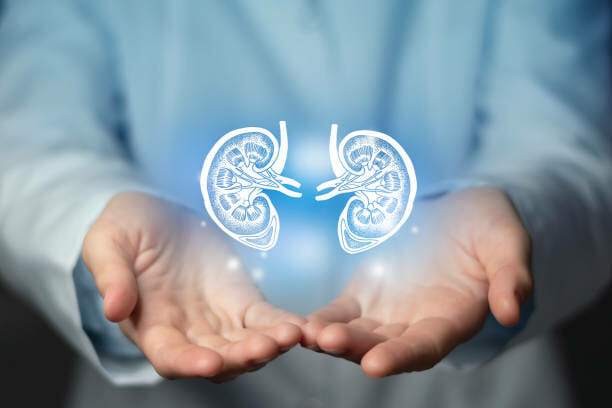
If you or a loved one has been diagnosed with chronic kidney disease (CKD), you may not be aware of just how serious this condition can be. Also known as chronic kidney failure, it involves the gradual loss of kidney function.
Your kidneys play a vital role in your overall health. They filter waste and excess fluids from your blood, which are subsequently removed through the urine. However, the early stages of CKD show few signs or symptoms, so you might not even realize you have the condition until it has advanced. When that happens, it can cause dangerous levels of fluids, electrolytes, and wastes to build up in the body. CKD can progress to end-stage kidney failure which, without dialysis (artificial filtering) or a kidney transplant, can prove fatal.
The more you know about CKD and its potential effects, the better you can prevent it or have it effectively treated.
Causes and Symptoms of Chronic Kidney Disease
CKD occurs when a disease or condition impairs your kidney function, causing damage that worsens over several months or years. It can be caused by:
- Type 1 or type 2 diabetes
- High blood pressure
- Glomerulonephritis, which is an inflammation of the kidney’s filtering units
- Interstitial nephritis, which is an inflammation of the kidney’s tubules and surrounding structures
- Inherited kidney diseases
- Prolonged obstruction of your urinary tract from conditions such as an enlarged prostate, kidney stones, and some form of cancer
- Vesicoureteral reflux (a condition that causes urine to back up into your kidneys)
- Recurrent kidney infection
Besides diabetes, risk factors for chronic kidney disease include abnormal kidney structure, a family history of diabetes, frequent use of certain medications, heart disease, high blood pressure, older age, obesity, and smoking. It is also more common among those who are Black, Native American, and Asian American.
The signs and symptoms of kidney damage are often nonspecific and may not be immediately apparent, but instead develop slowly over time. Depending on its severity, loss of kidney function can cause:
- Fatigue and weakness
- Loss of appetite
- Nausea
- Vomiting
- Difficulty sleeping
- Urinating more or less
- Muscle cramps
- Swelling of your feet and ankles
- Decreased mental sharpness
- Hypertension (high blood pressure)
- Chest pain (fluid buildup around the lining of your heart)
- Shortness of breath (fluid buildup in your lungs)
Another troubling thing about CKD is that it can affect many parts of the body. Besides irreversible damage to the kidneys, complications may include:
- Anemia
- Damage to the central nervous system
- Decreased immune response, making you more susceptible to infection
- Decreased libido, erectile dysfunction, or reduced fertility
- Fluid retention, resulting in swelling of the arms and legs, high blood pressure, or pulmonary edema (fluid in the lungs)
- Heart disease
- Hyperkalemia (a sudden and dangerous rise in potassium levels in the blood)
- Pregnancy complications
- Weakened bones and increased risk of fractures
CKD Prevention
There are many ways you can reduce your risk of developing chronic kidney disease. These include:
- Follow the instructions on over-the-counter medications. Do not overuse pain-relieving meds that contain ibuprofen.
- Maintain a healthy weight. If you are overweight, discuss weight loss strategies with your doctor. If already at a normal weight, stay fit by being physically active.
- Refrain from smoking. Tobacco products can damage the kidneys or make existing kidney damage worse.
- Manage your medical conditions with the help of your primary physician. Ask your healthcare provider about tests to detect kidney damage. If you have a condition that increases your risk of developing a disease, work with your doctor to control it.
Medical Center in South and Central Florida
One of the many benefits of being a patient at Palm Medical Centers is that you don’t need to travel elsewhere for most common diagnostic tests – including those for kidney problems. We have multiple clinics throughout South and Central Florida where we provide diagnostic services – as well as follow-up primary care – in-house for your convenience.
If you are already an established patient, simply call your provider’s clinic or use our convenient patient portal to make your appointment.
To become a patient, call Palm Medical Centers at (833)500-PALM (7256) now.







